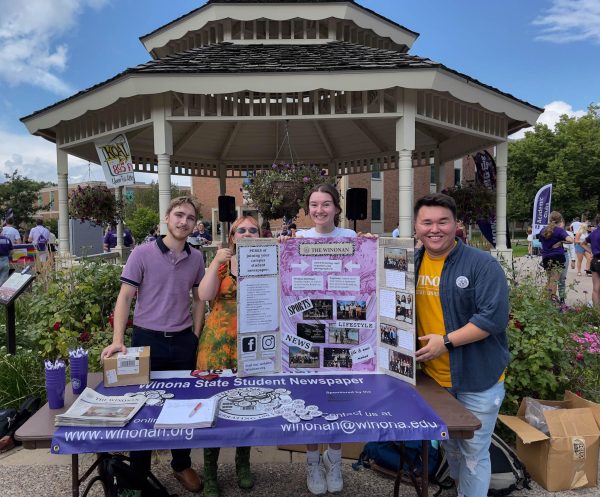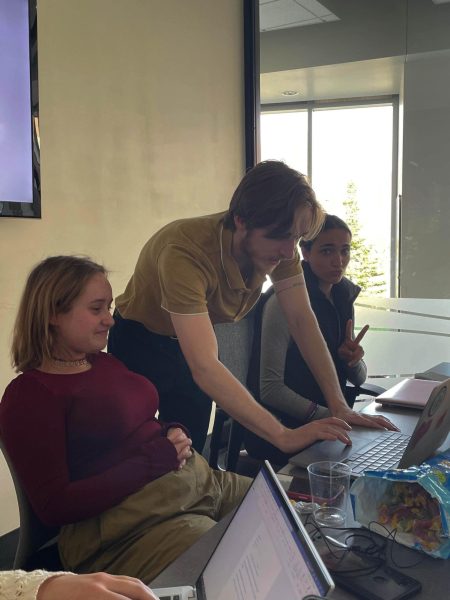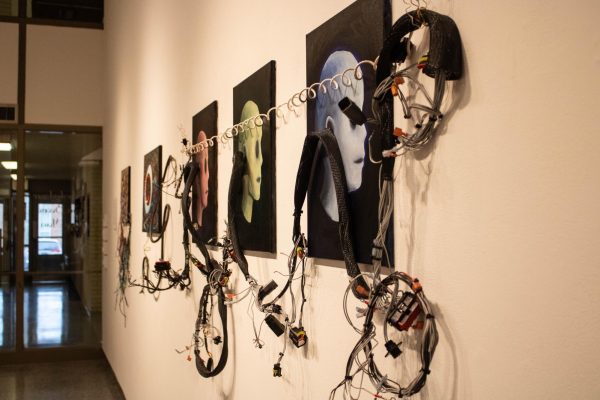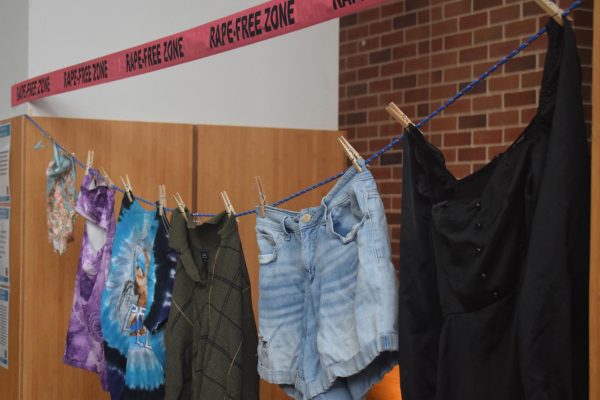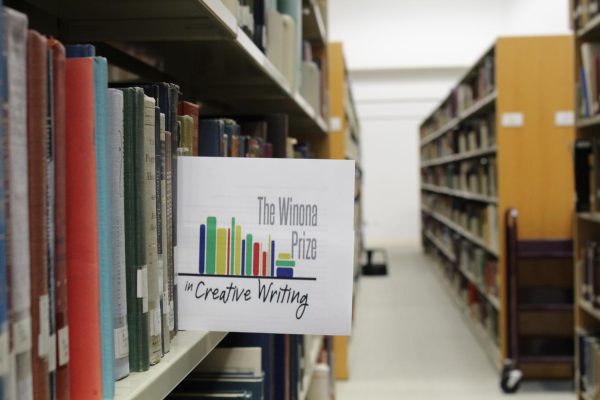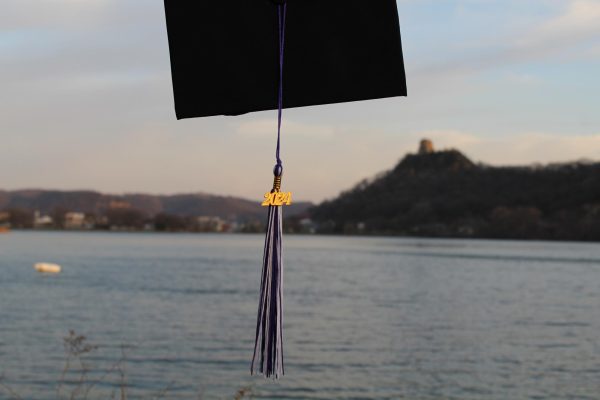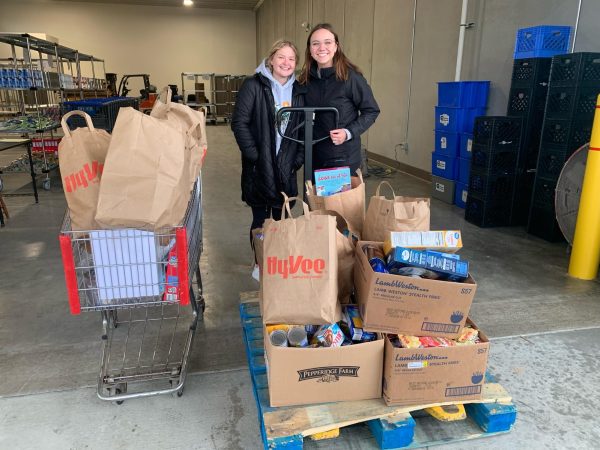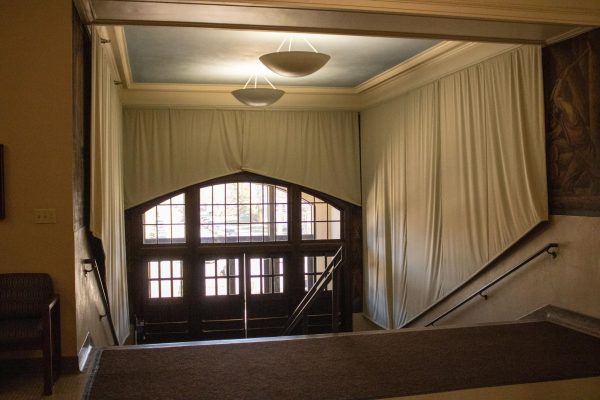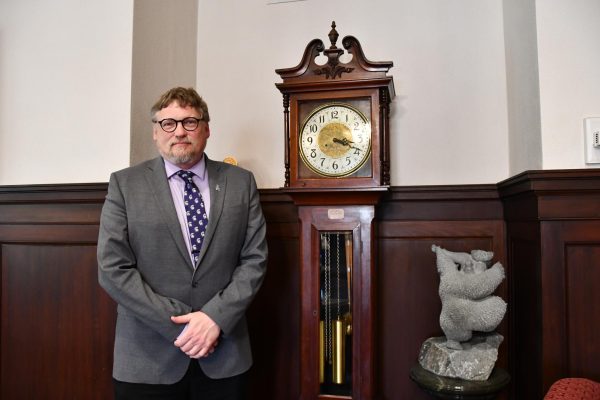Winona State students & staff talk finals stress
April 21, 2021
With finals week approaching, both students and staff are bracing for the end of the
spring semester at Winona State University.
Finals are nothing new to students, however COVID-19 has changed the way students prepare.
First-year student Jayna Domeier is a music education major with an emphasis in instrumental music. Domeier is also a part of several clubs and organizations including student bands, National Association for Music Education and bowling clubs.
Domeier said all of this involvement equates to a lot of stress going into finals since she also has to consistently remind herself of all of the extra homework and studying.
“I’m definitely a little more stressed, especially for my music juries because those are in person. For me, it’s a lot of practicing and [studying] for my other classes, like my informational classes,” Domeier said.
Jessica Weis, a second-year student majoring in public relations with a minor in art history, said her art class is demanding most of her time.
“The course that I’m going to study the most for is my Western art class because it’s very focused on the history of the art and which artist has composed it and how it is made; if it’s a fresco or what kind of paint was involved,” Weis said.
COVID has affected where and how students study too, a common theme being the different locations they make use of.
“A routine for getting work done and utilizing different locations for studying also helps. Usually my laptop has all my notes and then practicing-wise, I try to practice my instruments at least an hour a day,” Domeier said. “I like to go somewhere that’s not my room, I usually get distracted in my room. Usually [I’ll study at] the library, or if it’s nice outside, I’ll sit on a bench,” Domeier said.
Weis also finds locations to help her focus as well as taking a more old-school approach to taking notes and studying.
“What I’ve established as a good study routine is going through the content again and taking handwritten notes, because I believe there are studies that prove by your hand touching the paper [plus] synchronous eye movement helps memorizing concepts and really understanding the content,” Weis said. “I also typically like to go to coffee shops or the library on the first floor because the ambient atmosphere helps me focus.”
Mass Communication Professor Tom Grier shared his advice on intentional studying.
“Make an appointment with yourself to be successful. So, that means write it in your calendar. Wednesday from 1 to 3 p.m.: study for finals. Actually make an appointment with yourself. So, I would actually plan and lock in time to study and prepare and get ready. Don’t overthink it. If you overthink the class, you’re likely to get it wrong. So, trust your gut and don’t overthink it,” Grier said.
Sociology Professor Krishna Roka teaches courses such as intro to sociology, urban sociology and intro to sociological research. He also explains how students can properly prepare for his finals.
“I think the one thing they need to understand is they need to know exactly what that exam is about, what chapters and what format. I always advise my students, if there’s any questions, always ask the faculty. Don’t make assumptions. Don’t get answers from your friends,” Roka sid. “Students can contact us with any questions they have, whether it’s chapters [or] topics. But, I think it helps to get the answer directly from us, rather than making assumptions.”
The importance of college finals remains undiminished by COVID.
“Doing good in finals is important to me because I feel like music is going to be the rest of my life and I need to know this information to become a good music teacher someday,”
Domeier said.
Weis echoed this significance.
“Obviously doing good on finals is important to me, because ultimately I am paying to be here and it would be foolish to put it aside and not attempt to learn the material,” Weis said.
Faculty shared how COVID affects the way they prepare for online finals, which requires a
new attitude.
“Online exams have been a big challenge. We all understand we live in a difficult time, so I’m trying to accommodate student challenges and also understand my own difficulties,” Roka said.
Grier also attests to concerns come exam time in terms of student cheating.
“I’m asking them [students] to remember things and what’s to say while they’re doing the tests on a computer and maybe looking things up on another device that’s nearby? We all have four or five devices, right,” Grier said. “I became less enamored with the true, false or the multiple-choice questions on the final exam. So, I totally changed that last fall and in the spring I’m doing more essay related exams. Now I say, prove to me you want to write something intelligent and use terminology that you’ve gained from my class.”
Teaching online due to COVID this year has been a very different experience for faculty.
“Sociology is more of an interaction and discussion-based topic, which I miss a lot seeing students in the classroom,” Roka said. “However, I am happy to teach one of my courses in a hybrid format and interact with students.”
Grier agreed teaching online has been difficult but noted his appreciation for Zoom as well.
“That [Zoom] was the biggest change I think, but it really hasn’t been that terrible. I know a lot of people complain about it, but I think the invention of Zoom is amazing because you can meet with your students. It’s not quite face-to-face, but it’s pretty close,” Grier continued.
Faculty shared how their main goal during these closing weeks of the semester is still to help their students succeed in finals.
“I am most concerned with students missing the exam times online, which can be a little bit stressful because I want every student to complete the final and pass my course,” Roka said.
Grier said since there is often a heavy sense of dread among students during finals week, he tries to reach out with reminders.
“I have sensed a greater amount of anxiety among the students. I can sense when a student starts slipping away, why? Because there is pressure, anxiety and stress,” Grier said. “So, I reach out to those students and I say, hey, what’s going on? Are you okay? I can help you with anything. I think it’s just that personal touch that can make an impact on a student.”




























































